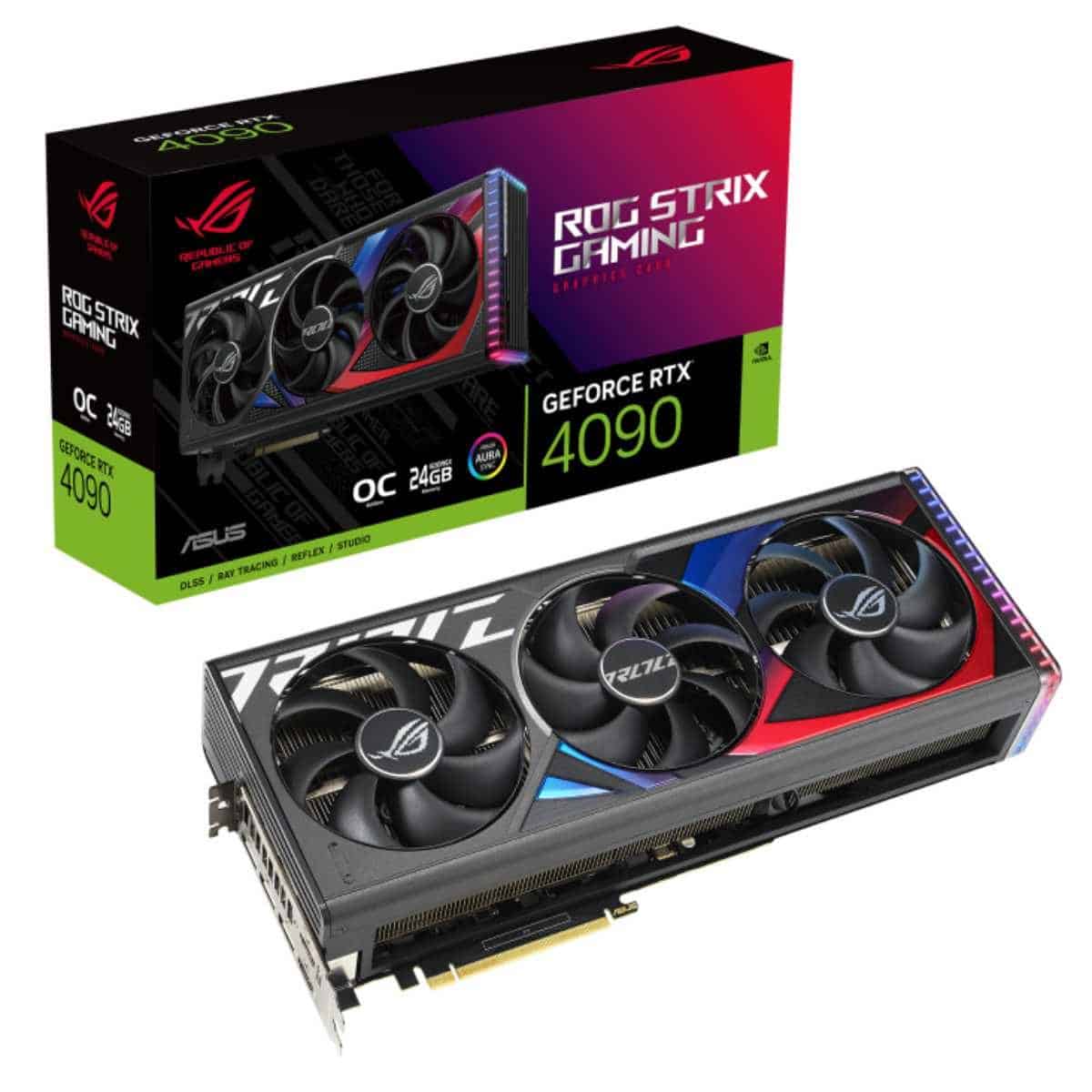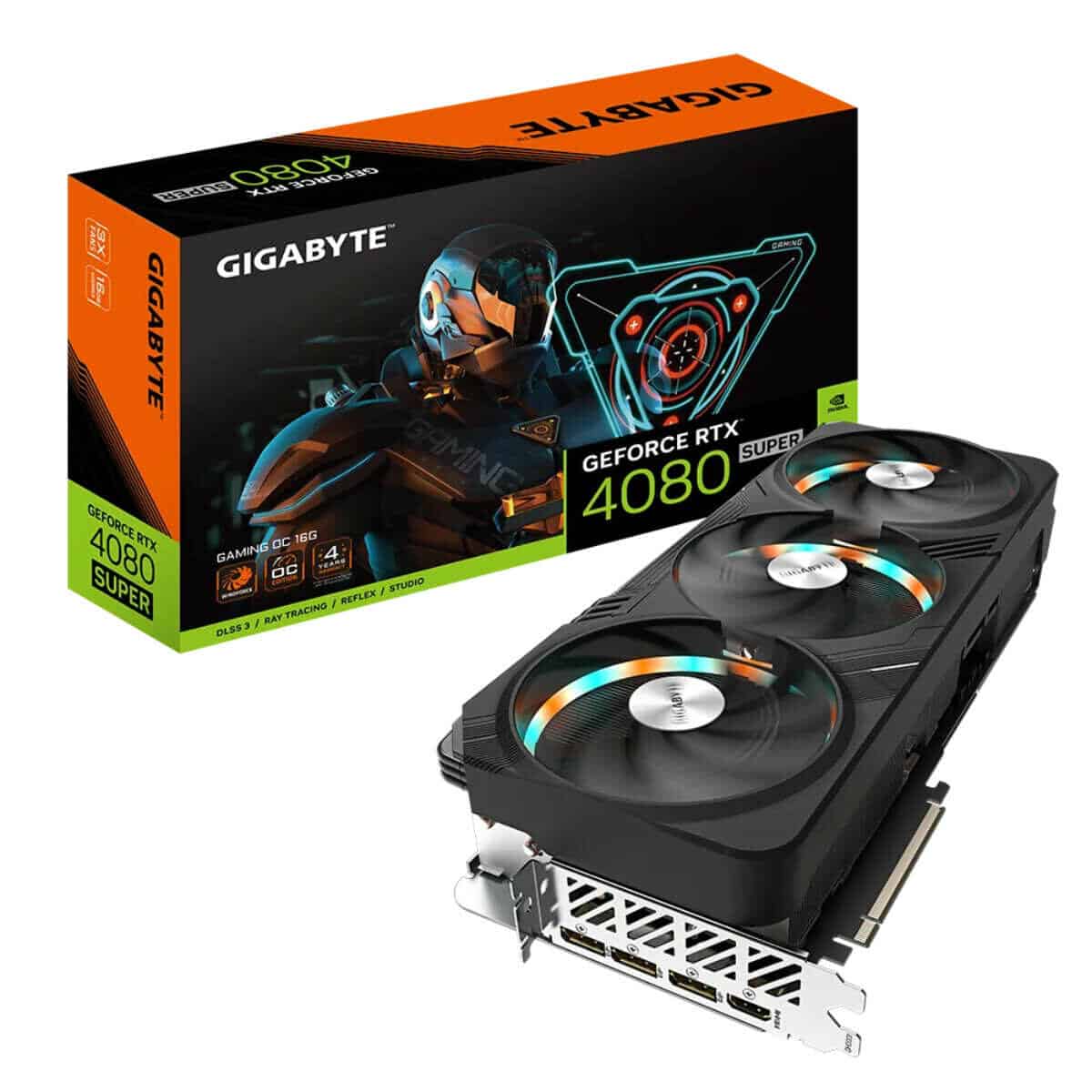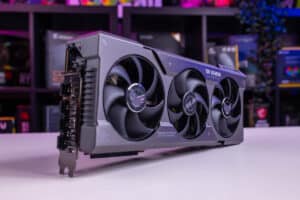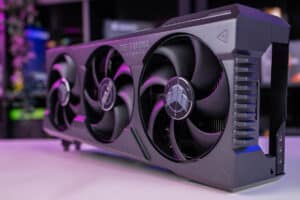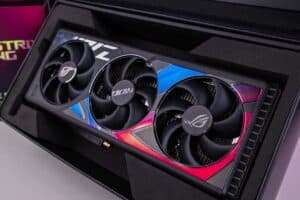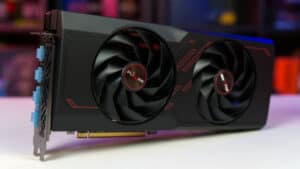Best Nvidia GPU – our top GPU for gaming on PC
Team Greens powerhouse offers a lot of options, so here are the best Nvidia GPUs
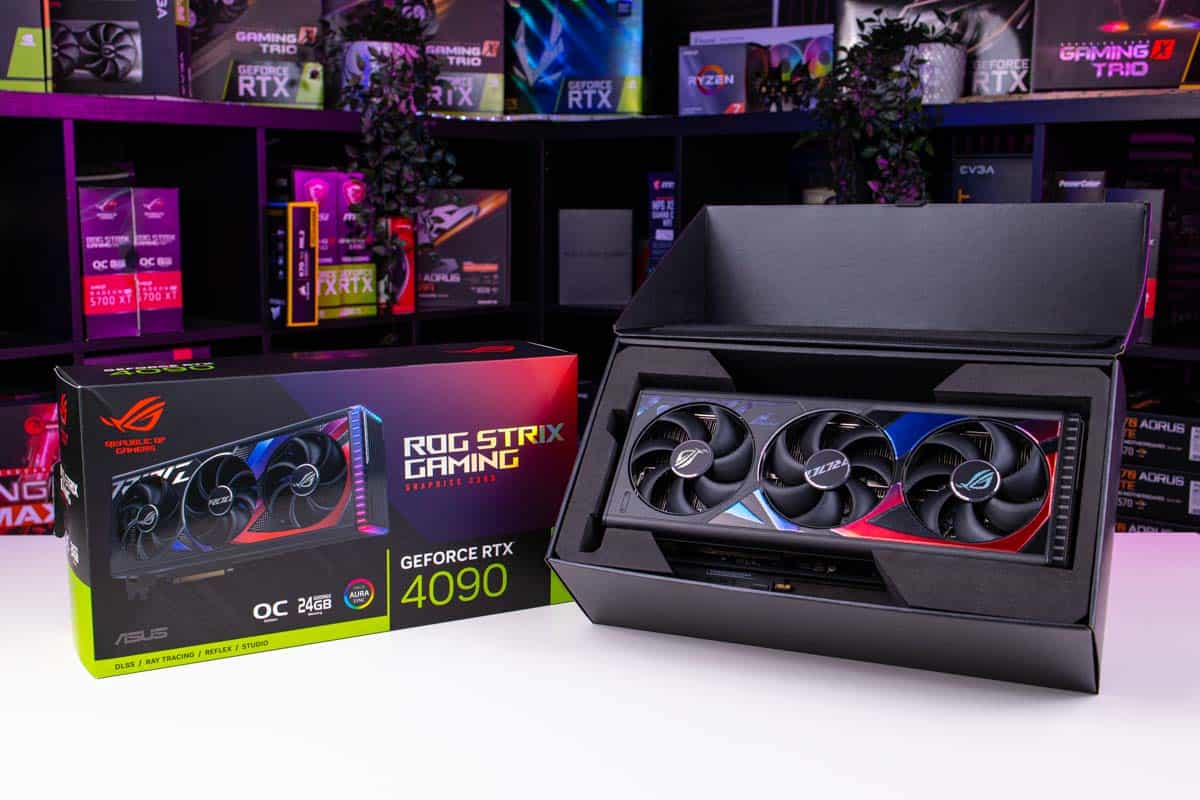
WePC is reader-supported. When you buy through links on our site, we may earn an affiliate commission. Prices subject to change. Learn more
The best Nvidia GPUs are in large part, the best graphics cards money can buy, a trend that looks set to continue for a while. They’ve always been one step ahead of their bitter rivals (AMD) and continue to release bigger and better GPUs year in, year out, a recent example would be the 40-series Super refresh. One drawback a lot of people consider when it comes to Nvidia is the conception that Nvidia GPUs are pretty expensive – which can be the case, but not always. But also being much more power-hungry.
They have flooded the market in recent years with high-performance GPUs that branch out across the entirety of the price spectrum. It doesn’t matter whether you’re looking for a budget card to boost your APU build or the latest high-end model for a powerful new gaming build; Nvidia has it all. We’ve decided that we will be looking at only the best Nvidia graphics cards on the market today. We’ll be explaining exactly what to look for in a new GPU, and how certain specifications affect the overall performance of that card.
Best GPU deals
- ASUS TUF Gaming GeForce RTX 4070 Ti Super –
- XFX Speedster QICK319 Radeon RX 6750XT CORE Gaming Graphics Card with 12GB GDDR6 HDMI 3xDP, AMD RDNA 2 RX-675XYJFDP – Save 22% NOW!
- ZOTAC Gaming GeForce RTX 4060 Ti 8GB Twin Edge OC White Edition – Save 5% NOW!
- ASRock Phantom Gaming Radeon RX 7900 XTX – Save $50 now!
- GALAX GeForce RTX 4070 – Save 24% now!
- ASRock Challenger Radeon RX 7800 XT – Lowest ever price
- MSI Gaming RTX 4070 Ti X Slim 12GB – Save 14% NOW!
- ZOTAC RTX 4060 Twin Edge OC White Edition – Save 15% NOW!
- ASUS ProArt GeForce RTX 4060 OC Edition – Save 11% NOW!
- ZOTAC GeForce RTX 4070 SUPER Twin Edge –
Best Nvidia graphics card 2024

ASUS ROG Strix RTX 4090 OC
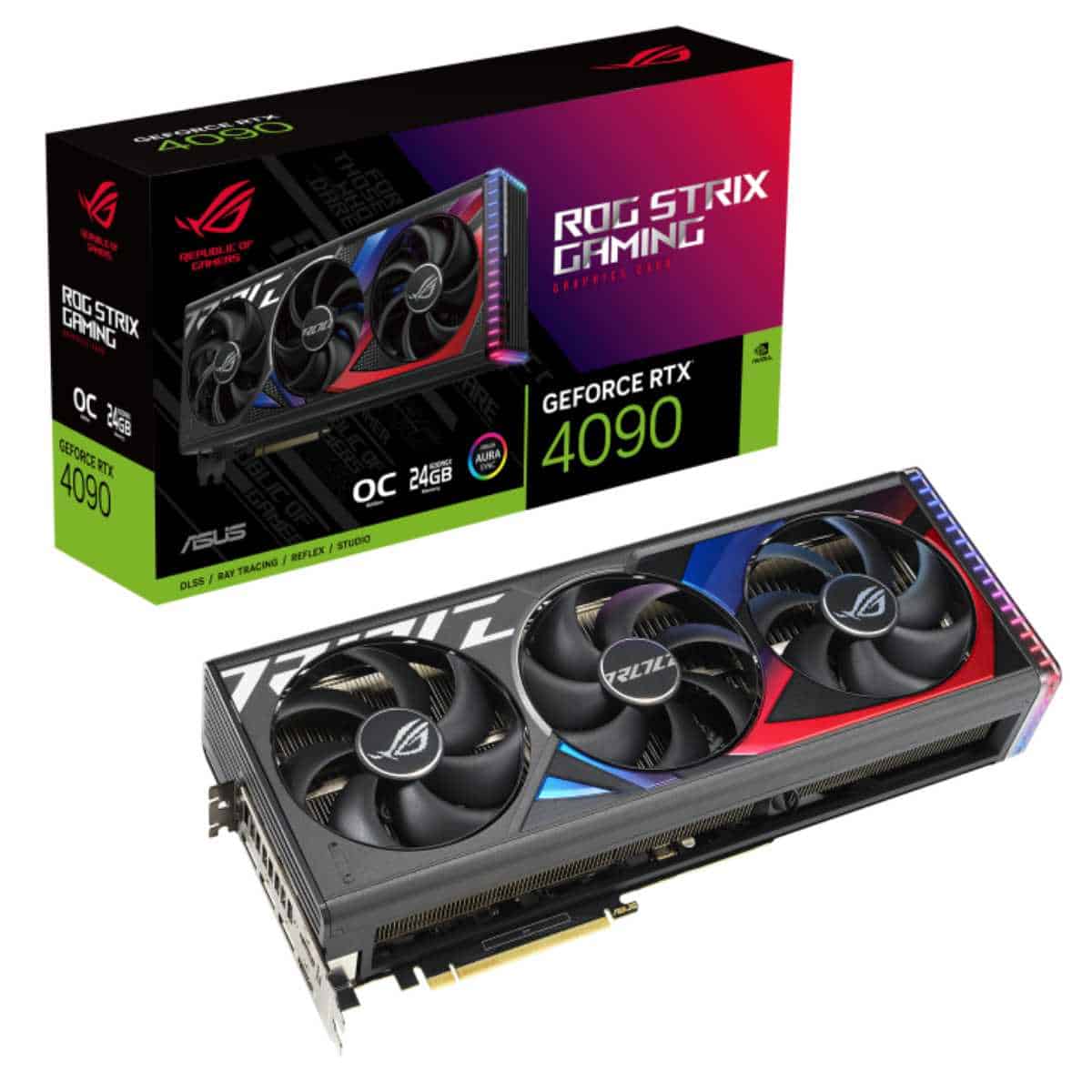
Core Clock Speed
2,640 MHz boost
CUDA Cores
16,384
Memory Size
24GB GDDR6X
Dimensions
357.6 x 149.3 x 70.1mm
PSU Required
1000W
TDP
450W
- Excellent air cooling solution
- Pushes performance above the rest of the selection
- Updated design cooling and aesthetically focused
- A more expensive choice over the rest of the picks and will cost a lot to run
The newest addition to the RTX family is the Ada architecture. This range of cards has a great load of improvements to the GPUs. At the top of that family is the RTX 4090 and it is a new beast in the pack. The introduction of new features also propels the rest of the package.
Its raw power gives it the lead in everything it has to offer, with performance leading the pack ahead of the older generation. It also has the ability of the newest DLSS 3 features. With frame generation, it can fill in that gap of what is missing more smoothly. And so it has plenty more on offer other than the performance.
Although there are some hefty drawbacks to it. With the rising TBP, the size of the cards has massively increased. With plenty of custom cards reaching 4 slots, it is hard to fit into a lot of places. Along with a much more uneconomical power draw, even with a better performance per watt.
But as we saw in our benchmarks during the RTX 4090 review the gaming performance is unmatched. Gamers can even get hundreds of FPS even at 4K in some games. Even notorious Cyberpunk can get a good framerate, be it with some help to get something more most of the time. The main drawback of the card is also the MSRP, sitting at $1,599 and now much higher from its demand for AI, it does cost quite a penny to get.
Top-performing affordable Nvidia GPU
GIGABYTE RTX 4080 SUPER Gaming OC
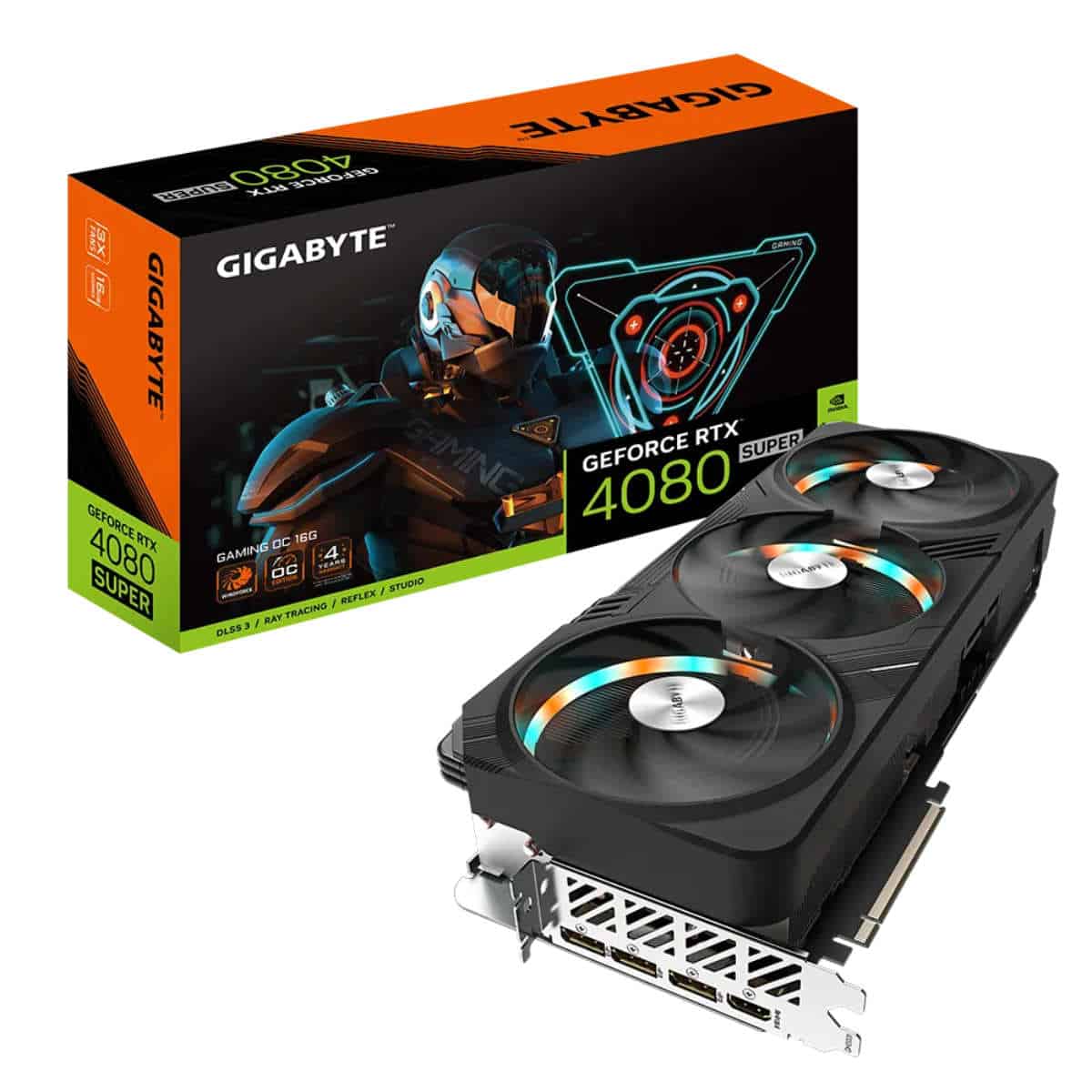
Core clock speed
2.595GHz boost, 2.025GHz base
CUDA count
10,240
Memory
16GB GDDR6X
Dimensions
342 x 150 x 75 mm
PSU required
850W
TBP
320W
- Strong build quality
- Excellent cooling capabilities with its design
- Utilizes 16-pin power connector
Where the price comes down a bit to reach a bit more affordable levels is with the RTX 4080 Super. Coming with a refresh to the selection of Ada graphics cards, it props up the value of them and gives them plenty more to offer even if maybe that’s what they should have been initially.
During our review of the 4080 Super, we found how powerful the card is. Although 4K might not get hundreds of FPS in heavy-hitting games it still shows off incredible frame rates and strong performance across the board. The likes of ray tracing and rendering are not an issue for the card, and access to all the latest features provides you with a strong card for the long term.
Improving on what the RTX 4080 already had on offer and coming in with a lower price tag, certainly a lot lower than the 4090 came in at. One of the best Nvidia GPUs to get for the long term, it does offer a strong future-proofing option.
Best value Nvidia GPU


ASUS TUF Gaming GeForce RTX 4070 Super OC
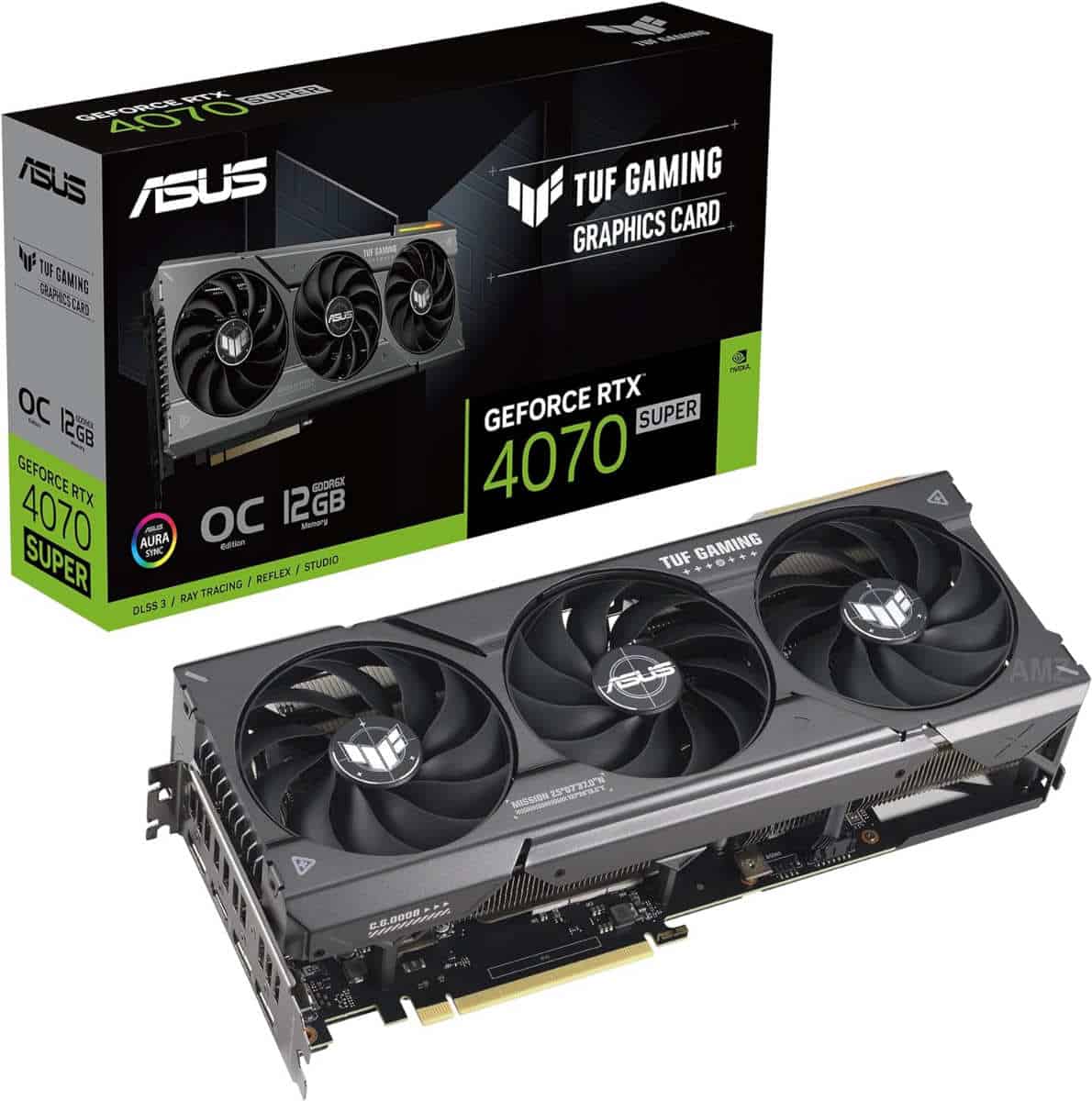
Core clock speed
2565 MHz boost, 1980 MHz base
CUDA count
7,168
Memory
12GB GDDR6X
Dimensions
301 x 139 x 63 mm
PSU required
750W
TBP
220W
- Great build quality and design
- Strong value for the performance with 1440p and above resolutions
- A high cost model as it is much higher than MSRP
- Requires 16pin power connector and so an adapter is needed that has been hazardous
- Large size card can be harder to fit all cases
Another boost to the 40 series offering is the RTX 4070 Super, the lower tier choice of upgrades that comes with that lower price of $599, which is a rather high price still but on the lower end for what Nvidia has to offer. The 4070 Super specs bring with it 12GB of GDDR6X as the lower options lack the offerings for memory, the 70 series is the first to bring a good option for it.
As we found in our RTX 4070 Super review, there is not much the graphics can’t do. Even though not targeting the highest 4K, it still offers a basic entry into it, and cutting down the settings will give you a boost of what’s available. But also using any upscaling including frame generation does mean you can achieve a better frame rate and performance. Certainly at 1080p and 1440p, you get a strong performing card.
With the 4070 Super, you get 12GB of GDDR6X memory, clocked in at 21Gbps across a 192-bit interface. Along with 7,168 CUDA cores which are clocked in at a 2,475MHz boost on the TUF model specifically. All of that package comes with a 220W TGP.
Best budget Nvidia graphics card

ASUS ROG Strix RTX 4060 OC
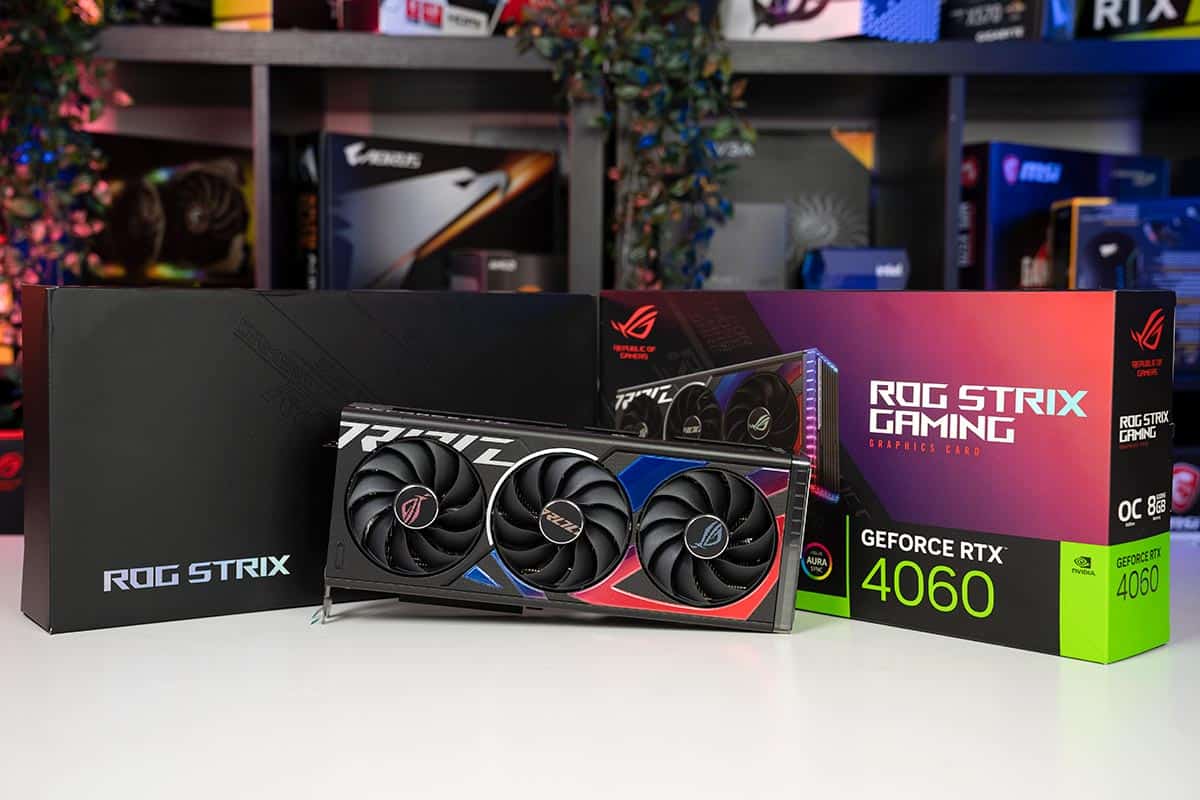
Core clock speed
1,830MHz base, 2,670MHz boost
CUDA cores
3,072
Memory size
8GB GDDR6
Dimensions
311.4 x 133.5 x 61.9mm
PSU required
550W
TBP
115W
- High quality and well designed
- Overclocked model provides better performance over factory models
- Value of the 4060 worse than previous generations
- High model cost over other AIBs not too great for value
- Cooling overdesigned and large for the graphics power of the card
For Nvidia’s low-end, the RTX 4060 is the successor to one of the most popular picks of the Ampere generation. It brings a similar spec but with newer features that you can take advantage of. Including frame generation and the ability to use DLSS 3 to push what it does even further.
As we tested it in our RTX 4060 review, it is just a 1080p card, but it does it very well. As it is limited in its VRAM capacity it can’t push it much further but it does try where it can. With an alteration and adjustment, it can go further but it is an entry into the RTX family that is more affordable and a good choice for an entry-level, under $1000 gaming PC.
For the RTX 4060 specs, the package contains 3,072 CUDA cores with 8GB of GDDR6 memory at a speed of 17Gbps with a 128-bit bus. Whilst the boost clock reaches 2,670MHz on the Strix model, it is a higher option model compared to the base pick. Although with is the lower level card it does only has a 115W power requirement to keep things cool and not need much to run.
Best cheap Nvidia graphics card
ASUS GeForce RTX 3060 TI ROG Strix Gaming OC
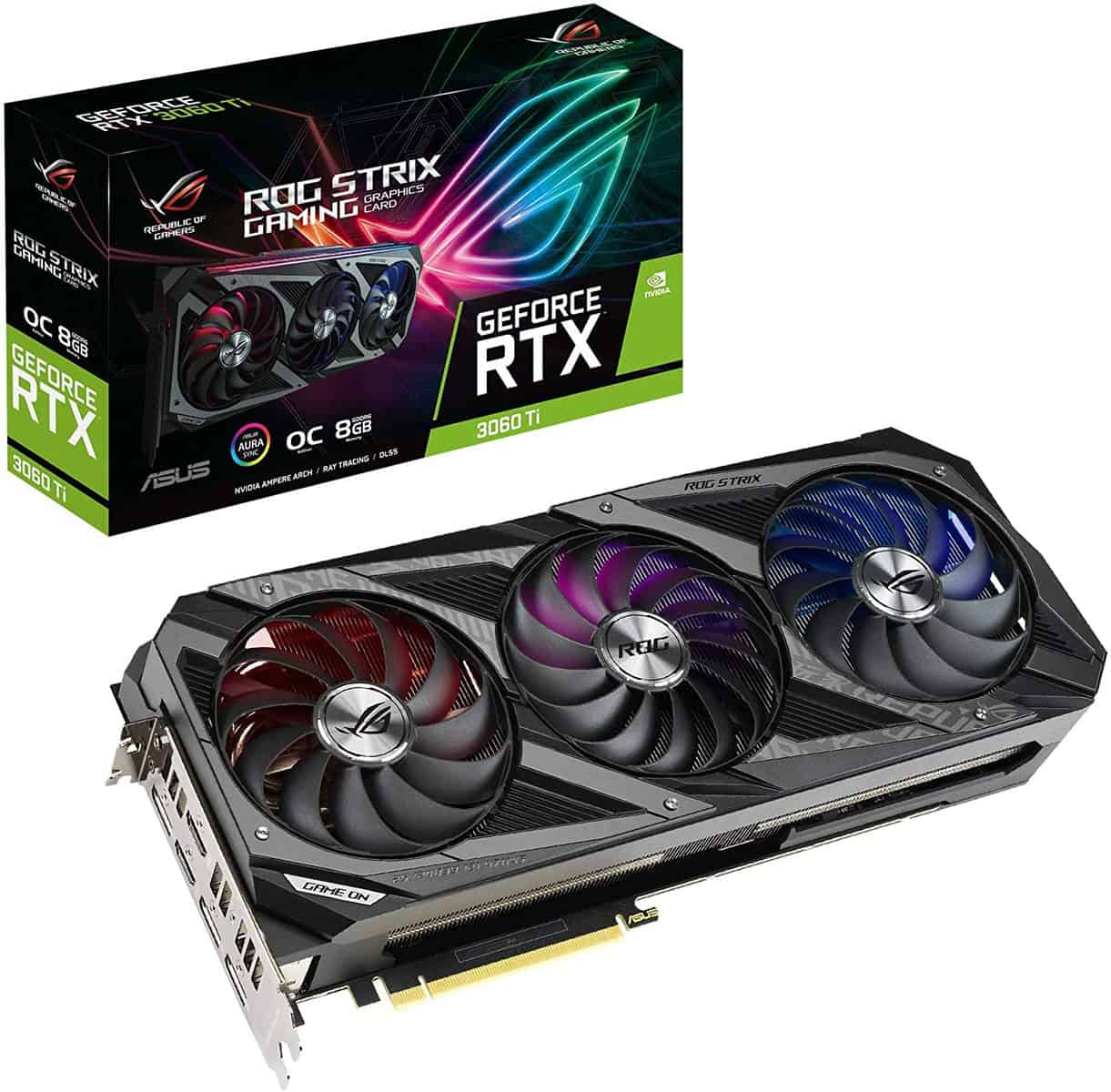
Core Clock Speed
1890MHz Boost Clock (OC)
Cuda Cores
4,864
Memory
8GB GDDR6
Dimensions
318 mm x 140 mm x 57 mm
PSU required
750W
TBP
Axial-tech Triple Fan
- Excellent aesthetic design
- Great cooling solution
- High boost clock speed
- On the higher end of the price spectrum
The Nvidia RTX 3060 Ti is below the RTX 3070 in the GeForce hierarchy as you’d expect, but shares many features with the more powerful card, including the same 8GB of GDDR6 VRAM and the same 256-bit memory bus. Despite having a lower core count than the RTX 3070, depending on the game you can expect FPS to fall behind the more expensive card by only around 15%-1% less. Considering the RTX 3060 Ti has an RRP of $399, $100 less than the RTX 3070, this is a great value.
In fact, we’d say that the RTX 3060 Ti currently offers the best power-to-price of any card on this list. It actually beats the previous-gen 2080 Super across all resolutions, despite retailing for less money. The card offers respectable FPS at 1080p and 1440p, making it a great option for those with a 1440p monitor not looking to break the bank, although 4K gaming is beyond its power (unsurprising at this price point).
Finally, the RTX 3060 Ti comes with the same ray-tracing technology as the more expensive cards in the series, giving it an edge over similarly priced AMD cards. Along with access to deep learning super sampling although not quite getting to the 3rd generation option.
If the RTX 3060 Ti seems the right card for you, have a look at our guide on the best RTX 3060 Ti variants to see which AIB of the card would suit you best. Here we have listed the ASUS GeForce RTX 3060 TI ROG Strix Gaming OC but a cheaper variant might suit you better.
What is the best Nvidia GPU?
Nvidia has been around for a while so there are a lot of choices to pick from. But we can narrow it down to something more modern. So for the best Nvidia GPU, we still recommend the RTX 4080 Super. As it is more reasonably priced than its replacement and has plenty to offer still.
Although the RTX 4090 is at the top end with great performance and ability, it is a bit more unattainable. The 4070 Super, 4060, and 3060 Ti are also great contenders across the board depending on your use cases and providing a strong addition.
Is NVIDIA GTX or RTX better?
GTX and RTX are Nvidia’s families of graphics cards with the initials coming before the SKU of the card. And so the RTX cards are better, as they are the newer GPUs that are more featureful. The RTX range enables the use of hardware ray tracing with the RT cores in the processor. Whilst also allowing the use of DLSS, with the newer 3rd gen version with frame generation enabled in the 40 series cards.
Final Word
So, there you have it; our comprehensive guide to the best Nvidia graphics cards money can buy. Unlike the AMD RDNA graphics card roundup, this was a much easier selection process. Nvidia has very clear standout GPUs in all price points, so making sure we chose the right ones simply came down to brand, cooling, and build quality.
With this range of choices for a new graphics card, there’s plenty to choose from, or even consider alternatives like AMD graphics cards. Either way hopefully, this article will be a guide for your next Nvidia graphics card purchase as one of the most important components to pick and slot into your motherboard.

